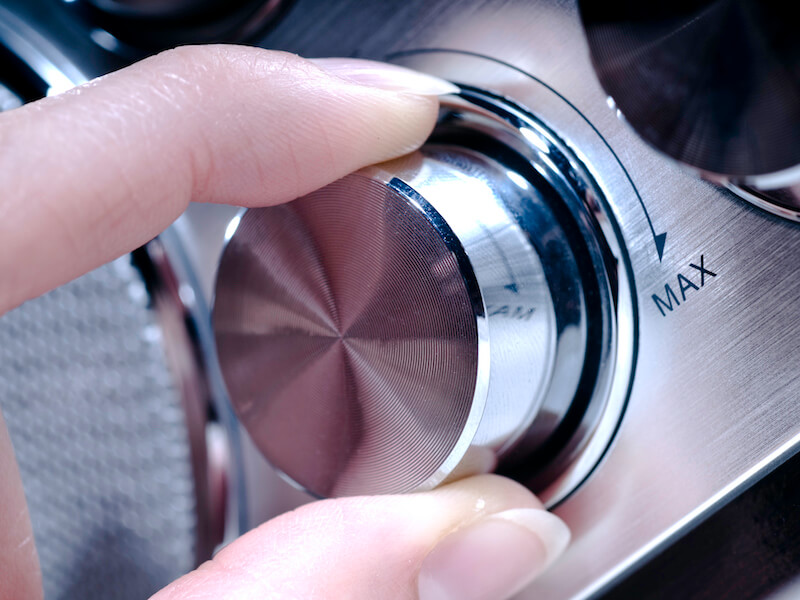
Recognizing when you need some medical advice is normally pretty easy. When you break your leg, for example, you know you should go to the doctor (or the emergency room, depending on the scenario). With situations like this, simply “toughing it out” isn’t a possibility. At least, not for very long (particularly if you want your bones to repair themselves properly).
It’s not always that clear cut with regard to hearing aids, however. Hearing loss is usually a progressive condition. This means it’s not always easy to know when you might need to start wearing hearing aids or to put off seeking treatment you know could be helpful.
So keeping an eye out for signs that your hearing may be going is a good idea. It’s probably time to call us for a consultation if you do notice any.
Hearing loss and hearing aids
Hearing aids are the primary method of treatment for hearing loss. But everybody who has some level of hearing loss won’t necessarily need hearing aids. In situations where patients have very mild hearing loss, hearing aids won’t always be beneficial. We may want you to hold off on using hearing aids because of this. It’s also feasible that we could advise you to only use your hearing aids when you’re in certain situations.
This means that just because you’re diagnosed with hearing loss doesn’t mean you will necessarily require hearing aids.
But in many instances hearing aids will be the best option. Many individuals won’t get their hearing loss diagnosed until it becomes more serious because hearing loss develops gradually and frequently goes unnoticed for a while. Getting your hearing tested regularly is the key to catching hearing loss early and possibly mitigating the need for hearing aids.
And if that’s the situation, you’re probably thinking: how can I tell if I require hearing aids?
You need hearing aids if you detect these indicators
Immediate communication issues can be the consequence of hearing loss. The funny thing, though, is that you don’t always realize that those communication difficulties are caused by hearing loss. So, when is it time for a hearing aid?
Here are a few of the common signs you should watch out for:
- Phone conversations sound muffled: Voices usually sound a little flat on even high-quality phone speakers. That can make it tough to understand, especially if you have hearing loss. Once again, certain frequencies are missing and the outcome is that it’s really hard to understand those voices.
- You listen to the radio or TV at high levels: Hearing loss could be the culprit if you continuously need to crank the volume of your devices up. This is especially true if you keep moving that volume knob higher (and even more especially true if the people around you complain about how loud your media is).
- When people talk, you can’t always make out what they said: Many individuals feel like the total volume of life is fine so they never consider that they may have hearing loss. But hearing loss is curious, it tends to impact certain frequencies before others. Which means that the great majority of sounds might seem normal but things in the high frequencies (such as certain vowels) will be distorted. This could cause you to have a difficult time understanding what people are saying.
- You have a hard time following conversations in noisy places: This is probably one of the most prevailing symptoms of hearing loss. One of the surest signs of hearing loss is that you have difficulty following conversations in noisy settings, like bars or restaurants. This occurs because your ears aren’t getting as much information as they used to, and your brain isn’t really able to fill in the gaps as easily. A lot of conversations get muddled as a result.
So what can you do?
When you break your leg, it’s obvious what to do: you go see the doctor! But what do you do when you begin to detect the symptoms of hearing loss? How severe does hearing loss have to be to require a hearing aid? Well, that’s difficult to answer, but when you start detecting these symptoms, it’s a good plan to schedule an appointment with us. We’ll be able to assess the health of your hearing and find out just how severe your hearing loss may or may not be.
And if you do end up needing hearing aids, a hearing exam will help identify the best device for your hearing needs. This means you’ll be able to get back to communicating with your friends and loved ones, you’ll understand your grandkids when they give you a call, your co-workers at your morning meeting, and your friends at the pub.
Call us for a hearing exam so we can help you improve your quality of life.